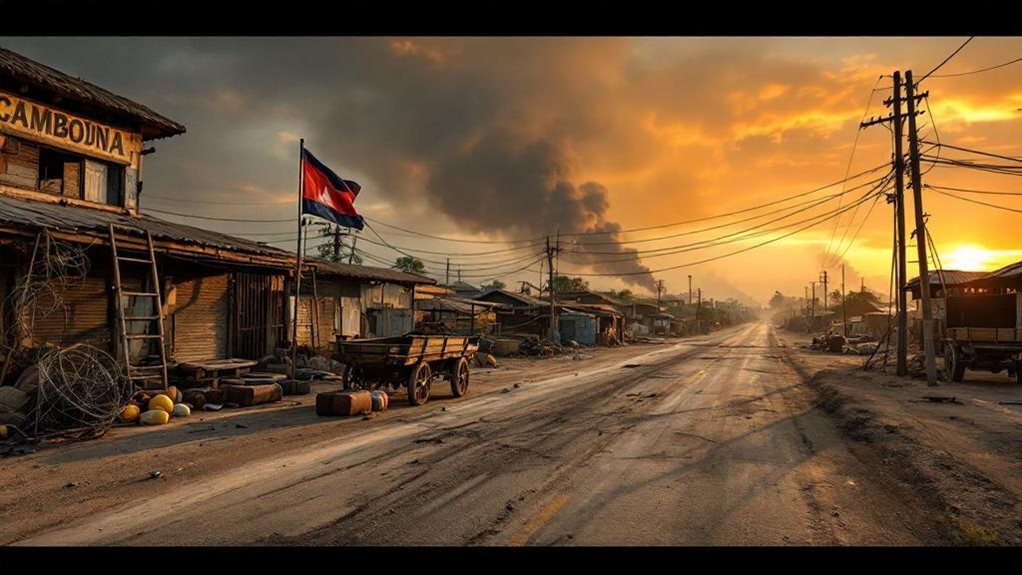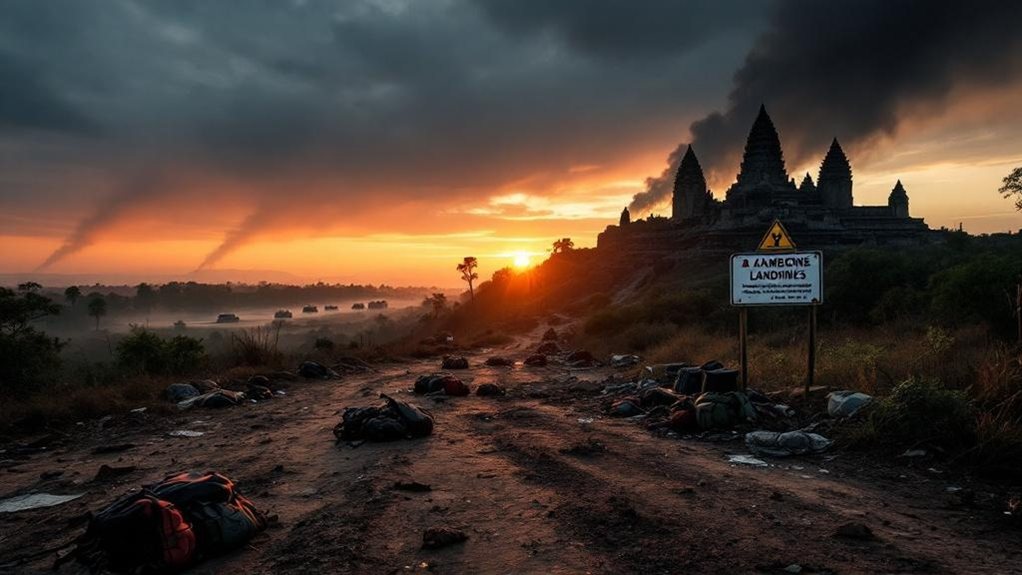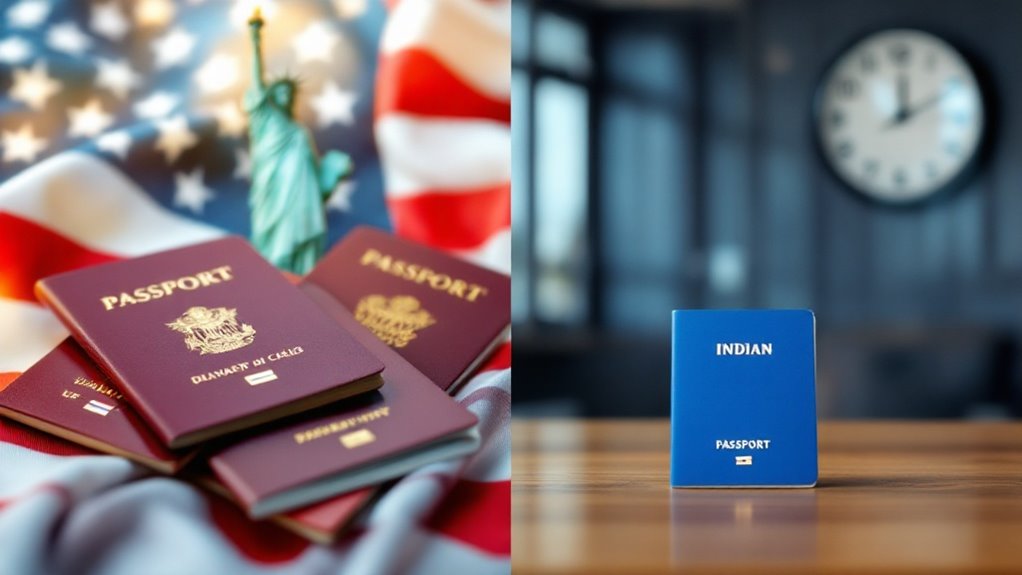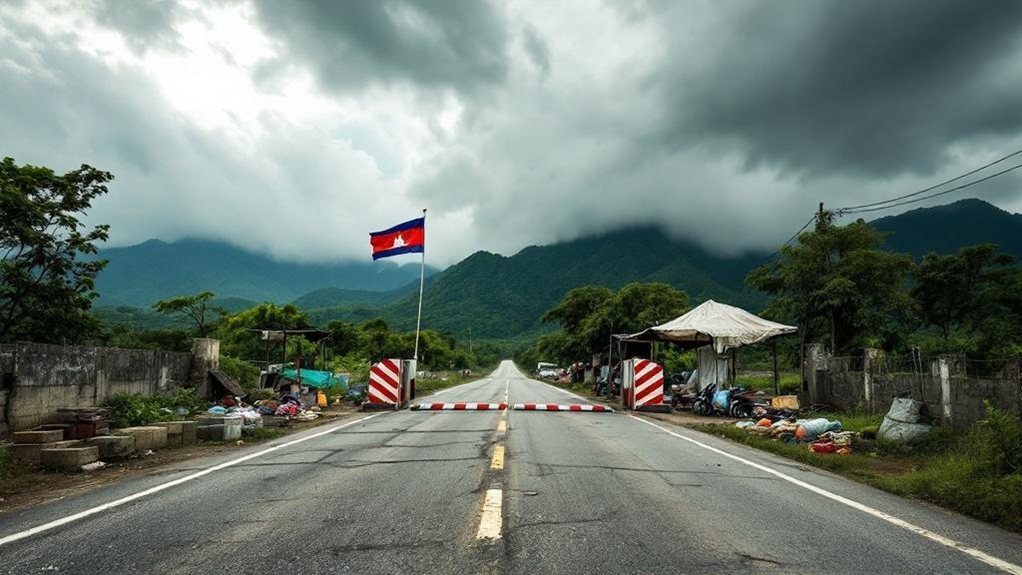The 2025 Cambodia-Thailand border conflict has plunged Cambodian migrant workers into uncertainty, disrupting livelihoods and exacerbating the humanitarian crisis. The closure of border crossings in Thailand’s Chanthaburi and Trat provinces halted cross-border migration and trade, impacting approximately 134,707 Cambodians. Workers face employment insecurity and increased vulnerability due to precarious movement routes. Displacement strains local resources, complicates aid delivery, and exacerbates family separations. As tensions persist, further details about the regional impact emerge.
The 2025 Cambodia-Thailand border conflict has escalated into a serious humanitarian crisis, considerably impacting Cambodian migrant workers. Stemming from a longstanding territorial dispute, the conflict reignited after a skirmish on May 28, 2025, and intensified into an armed confrontation by July 24. The historical roots of this conflict trace back to the 1907 Franco-Siamese treaty and the 1962 International Court of Justice ruling, which awarded the Preah Vihear Temple to Cambodia. Nationalist sentiments in both countries have fueled tensions, leading to multiple skirmishes between 2008 and 2011. The current conflict has drawn the attention of international partners, including Japan, the EU, and China, who have called for restraint and dialogue to address the situation.
Recent fighting has resulted in at least 32 deaths and displaced over 200,000 individuals, with satellite data suggesting Cambodia initiated more escalatory actions. The conflict’s military engagements involve artillery exchanges, rocket fire from Cambodia, and Thai airstrikes targeting military sites. Both nations accuse each other of targeting civilian areas, further exacerbating the humanitarian situation. A landmine incident on July 23, which severely injured a Thai soldier, marked the immediate precursor to open conflict. At least 32 people have been reported killed in hostilities as of July 26, 2025, highlighting the ongoing military tensions and contributing to the rising numbers of affected civilians.
Satellite data suggests Cambodia initiated conflict, leading to 32 deaths and displacing over 200,000 amid artillery and airstrikes.
Thai authorities confirmed at least 13 civilian deaths caused by Cambodian attacks, though Cambodian civilian casualties remain unreported. The humanitarian impact on Cambodian migrant workers is substantial. The Thai government has closed border crossings in provinces such as Chanthaburi and Trat, severely disrupting cross-border migration and trade. These closures, compounded by heightened military presence and hostilities, create unsafe conditions for migrants living near the border.
With approximately 134,707 Cambodians displaced, workers face increased uncertainty as employment opportunities and safe passage diminish. Displacement and border restrictions may compel migrants to undertake irregular or precarious movement routes, heightening their vulnerability. Civilians caught in the conflict endure casualties, injuries, and property loss amid escalating violence.
The displacement also strains local resources in both Cambodia and Thailand, complicating humanitarian aid delivery. Migrant workers risk losing income and face livelihood disruptions and family separations due to the conflict and border restrictions. Furthermore, refugee flows could increase demand for shelter, food, and medical assistance in border regions, while regional insecurity may deter investment and economic cooperation essential for the welfare of migrant workers.









